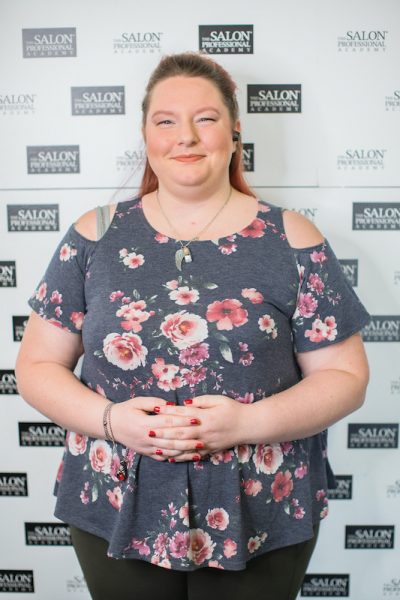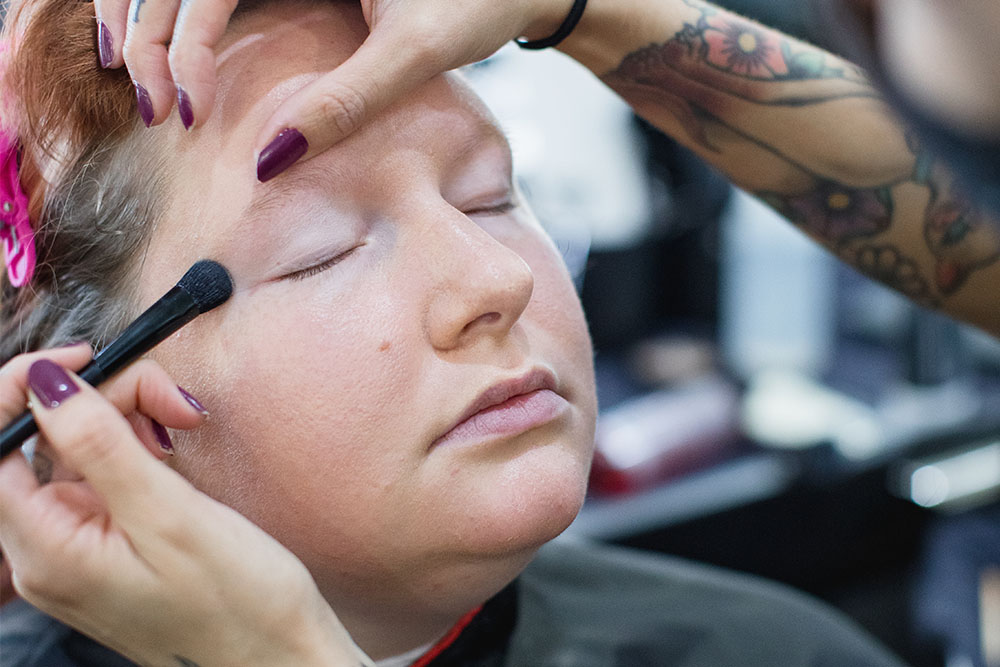Cheyanne's Story

“I went out in the streets expecting that I could find friends and instead I walked into multiple situations where I was violated in some form or fashion.”
Cheyanne is a 25-year-old former foster child who has lived through abandonment, homelessness, isolation and joblessness as she struggles to make the difficult transition from foster child to independent adult.
She was taken away from her imprisoned biological mother at the age of four then adopted by a great-aunt and uncle who thought she should be raised by family rather than strangers. But teen-aged Cheyanne clashed constantly with her adoptive mother, whose idea of a daughter didn’t fit the girl’s image of herself.


“She wanted the perfect daughter who would always listen. I was the rebel daughter that just wanted to do my own thing. I did everything I was asked, and I just wanted to be left alone,” Cheyanne says. “At the age of 16, I was back in (Texas Child Protective Services) custody.”
She bounced between different foster homes, group homes and halfway houses until landing at Boysville, an extended care foster home in Converse, Texas. Cheyanne was 20 years old and working part-time, but she became frustrated when Boysville wouldn’t let her take on more hours at work. So she left after just seven months. She ended up both unemployed and homeless and without the SSI benefits Boysville had been protecting.
“At that point, I was living on the streets. I didn’t have any place to go,” Cheyanne remembers.
She admits she was naïve and gullible about the dangers awaiting her living in San Antonio underpasses. “I went out in the streets expecting that I could find friends and instead I walked into multiple situations where I was violated in some form or fashion.
“I survived by being as mean as possible, the exact opposite of how I am. It hurt me every day to be as mean as I was, but it’s the only way you can truly find people you can trust. You have to be the mean, big, bad person which, as I said, is completely against my nature. I hated doing it every second.”
Cheyanne met her fiancé Albert about this time, and he and his family took her in when she needed it the most. The couple were just starting to live on their own when they lost both their jobs and their apartment during the COVID-19 shutdown. Now they are rebuilding. Cheyanne is in training for a call center job, and they have a new apartment and two loving cats.
As a child, Cheyanne finished her homework in class then would doodle in a notebook. She taught herself to draw with a self-help book from the library, progressing from stick figures to anime. Her teachers moved her to the computer, thinking she would be more entertained, and she became interested in video games.
“I want to become a professional streamer for video games, but I know right now that’s a little unlikely because of how hard it is to get into that particular community,” she says. Today her focus is very basic: “Just surviving. That’s my main goal, ensuring that I have enough money to get by for bills.”
She recently received her first paycheck from her new job. “I was excited because it’s the most I’ve ever made in a check. Unfortunately, it was also just the right amount for rent. So I had rent and maybe 20 bucks for food.”
She relies greatly on support from THRU Project, a San Antonio non-profit that helps former foster youth transition from foster care to adulthood. THRU Project provides mentors, cell phones, bus passes, life skills training and safe, affordable housing. It connects aged-out foster youth with social service agencies and other non-profits that have resources to help them become independent.
Cheyanne says her THRU Project mentor has taught her the fundamentals of adulthood such as budgeting her money. “She told me, ‘Bills before pleasure.’ Make sure you get all the necessities done first—light bill, rent, car, phone bill.”
Communication, transportation and education are tools THRU Project believes these youth need to be successful.
“In all honesty, if it weren’t for meeting with my mentor every month, I wouldn’t have a bus pass. I wouldn’t have been able to go out and get this job. I wouldn’t have been able to get any of the other jobs that I had. I wouldn’t have been able to make it to any of my doctor appointments, visit any of my friends. I wouldn’t have been able to do anything. I would have been stuck in one area,” Cheyanne says.
Growing up is a tough process in the best of circumstances. Foster youth face exorbitant rates of homelessness, unemployment, addiction and incarceration, which is the trajectory THRU Project is trying to change.
“It took me about seven years to finally realize, hey, I need to grow up and stop just screwing around. So instead of bouncing around and going back and forth between friends’ houses and Haven for Hope, I finally started turning towards the resources that THRU Project was offering,” Cheyanne says. “It was finally accepting the advice from my mentor after about two years and realizing that they weren’t here to hurt me. They were here to help me. That was one of my biggest issues. I learned not to trust anybody. I finally started trusting THRU Project, and it helped me. I now have a place of my own that I can pay for.”
Another challenge for former foster youth is learning to cope with the pain and trauma of their past. Cheyanne said her job keeps her mind busy from 12-9 pm and video games offer a couple hours of distraction. She says she tries not to internalize her pain, anger or negative emotions when they become overwhelming.
“For the most part, I just sit there and talk about it, and if I feel like crying, I let it out… I read in a book that misery cannot stick to a soul slick with tears. And I stand by that every day. Yeah, sure, you feel tired after a good cry…so I can attest that crying is a good way to relieve the stress, to just let go,” she says. “Obviously, it’s not a permanent solution because you’ve got to work through the issues you’re angry about… part of the grieving process is the anger. Then, at the end of the day, you have to find the source of that anger. Find out what’s going on, and that’s the only way you can actually start moving forward and healing.”
Albert nudged Cheyanne to correct her previous statement that she’s “just surviving” to “living.” She says she finds happiness in that achievement.
“Being happy is knowing that I’m helping to keep us alive, keep a roof over our head…and keep those two little furballs alive. That enough to make me happy, at least for now,” she says.
“I try to keep in mind that my story may have been bad for me. It may have been the worst that I’ve ever had at that point. But I try to remember there’s always someone out there who’s had it worse.”
To help former foster youth like Cheyanne:





